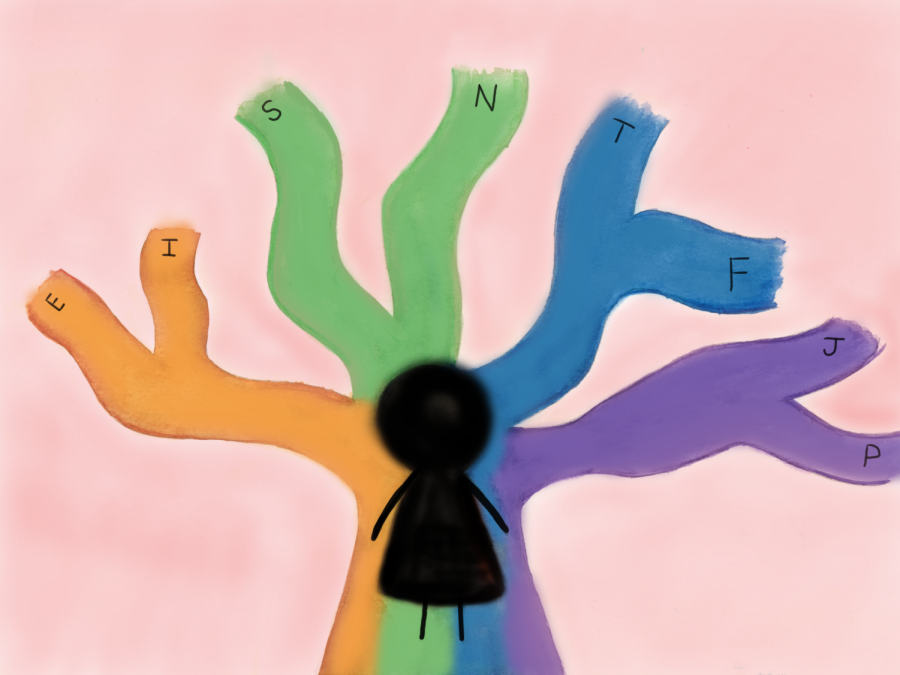The Myer-Briggs Personality Test
May 1, 2018
The Myer-Briggs Personality Test is an “assessment that is believed to measure psychological preferences in how people perceive the world and make decisions.” According to the test, there are 16 different types of personalities.
By taking the test, you will get a “freakishly accurate” description of yourself. The questions on the test are based on different scenarios that the test taker answers based on different degrees of agree or disagree. By choosing whether you disagree or agree with the question, the test determines your personality.
The personality test is generally based on the personality indicator developed by Katharine Cook Briggs and her daughter Isabel Briggs Myers. The development of the test occurred in the 1940s and was built based on the psychological research of Carl Jung in the 1920s.
The 16 personalities are chosen based on 4 things: Extrovert vs. Introvert, Sensing vs. Intuition, Thinking vs. Feeling, and Judging vs. Perceiving.
Extroverts are energized in the company of others. Extroverts tend to like speaking their mind and thrive in social situations. They may become drained if they aren’t in the company of others for a long time. Introverts, on the other hand, are quiet and reserved. They feel more comfortable being alone and socializing drains their energy, so they need alone time to recharge. They prefer to rely on themselves for entertainment rather seeking it out from others.
Sensing people put great emphasis on what they see, touch, and experience in the real world. They rely more on facts and prefer not to deal with philosophical ideas. They focus on what they are able to experience with their senses. Intuitive individuals focus on imagination and ideas, rather than what is in front of them. They prioritize dreaming and prefer living in their heads. They tend to go towards allusions, reading between the lines, and analyzing things at a greater depth.
Thinking individuals are objective, rational, and logical. Their decisions and actions are determined more by their mind than their hearts. Although they prioritize thinking over feeling, it doesn’t mean they lack emotion. They can be just as emotional and sensitive, but feelings are not their main priority. They tend to hide their emotions and prevent them from showing. They prefer facts over feelings. People with the feeling trait tend to care more about emotions and expressing themselves. This, however, doesn’t mean people with the feeling trait is irrational; it means that they will express themselves more and put their feelings over thinking. Feeling people tend to be more open-minded, vocal, empathetic, and sensitive.
People with the Judging trait tend to think and strategize before they act. They would prefer to have a well-thought-out plan over going with the flow. They are typically organized, reliable, and responsible. They have a good work ethic and are always prepared. On the other hand, people with the perceiving trait prefer to go with the flow. They value their freedom and don’t want to be tied down to specifics activity or commitment if they think something better with come. They are usually good at improvisation. They take life as it comes and feel restricted if they need to stick to a schedule.
The test happens to be very accurate; some corporations have their potential employees take the test in order to learn more about them and to see if they are a good candidate. The test takes less than 12 minutes and to get the most accurate results you must answer honestly and try not to leave neutral answers. If you want to take the test, you can find it at www.16personalities.com/free-personality-test.

